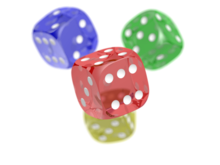Observations[edit]
- Degas was discussing poetry with Mallarmé; "It isn't ideas I'm short of... I've got too many" [Ce ne sont pas les idées qui me manquent... J'en ai trop], said Degas. "But Degas," replied Mallarmé, "you can't make a poem with ideas. … You make it with words." [Mais, Degas, ce n'est point avec des idées que l'on fait des vers. . . . C'est avec des mots.]
- From Degas, Manet, Morisot by Paul Valéry (trans. David Paul), Princeton University Press, 1960.
- J'invente une langue qui doit nécessairement jaillir d'une poétique très nouvelle, que je pourrais définir en ces deux mots: Peindre, non la chose, mais l'effet qu'elle produit.
- I have finally begun my Herodiade. With terror, for I am inventing a language that must necessarily burst forth from a very new poetics, that could be defined in a couple of words: Paint, not the thing, but the effect it produces. … the line of poetry in such a case should be composed not of words, but of intentions, and all the words should fade away before the sensation..
- On his unfinished work Hérodiade, in a letter to Henri Cazalis (30 October 1864); Oeuvres Complètes (1945) edited by Mondor & Jean-Aubry, p. 307, as translated in Mallarmé : The Poet and his Circle ([1999] 2005) by Rosemary Lloyd, p. 48.
- If only I'd chosen an easy work! But, precisely, I, who am sterile and crepuscular, have chosen a terrifying subject, whose sensations , if they are strong, reach the point of atrocity, and if they are vague, have the strange attitude of mystery. And my Verse hurts me at times, and wounds me as if it were of iron! I have, moreover, found an intimate and unique way of painting and noting down the very fleeting impressions. I should add, which is even more terrifying, that all these impressions follow one another as in a symphony, and I often have entire days when I ask myself if this impression can accompany that one, what is their relationship and effect … You can guess that I write few lines in a week.
- On his unfinished work Hérodiade, in a letter to Henri Cazalis (15 January 1865), as translated in Mallarmé : The Poet and his Circle ([1999] 2005) by Rosemary Lloyd, p. 48
- It is in front of the the paper that the artist creates himself.
- Letter to Eugène Lefébure (February 1865), published in Selected Letters of Stéphane Mallarmé (1988), p. 48
- Yes, I know, we are merely empty forms of matter, but we are indeed sublime in having invented God and our soul. So sublime, my friend, that I want to gaze upon matter, fully conscious that it exists, and yet launching itself madly into Dream, despite its knowl edge that Dream has no existence, extolling the Soul and all the divine impressions of that kind which have collected within us from the beginning of time and proclaiming, in the face of the Void which is truth, these glorious lies!
- Letter to Henri Cazalis (April 1866), published in Selected Letters of Stéphane Mallarmé(1988), p. 60
- In a museum in London there is an exhibit called "The Value of Man": a long coffinlike box with lots of compartments where they've put starch—phosphorus—flour—bottles of water and alcohol—and big pieces of gelatin. I am a man like that.
- Letter dated 17th May 1867.
- Hyperbole! can you not rise
In triumph from my memory,
A modern magic spell devise
As from an ironbound grammary:
For I inaugurate through science
The hymn of all hearts spiritual
In the labor of my patience,
Atlas, herbal, ritual.- "Prose" (1885)
- O Spirit of litigation, know,
When we keep silent in this season,
The stem of multiple lilies grew
Too large to be contained by reason- "Prose" (1885)
- La chair est triste, hélas! et j'ai lu tous les livres.
- The flesh is sorrowful, alas! And I've read all the books.
- "Brise Marine", line 1 (1887), as translated in Mallarmé : The Poet and his Circle ([1999] 2005) by Rosemary Lloyd, p. 70

No comments:
Post a Comment